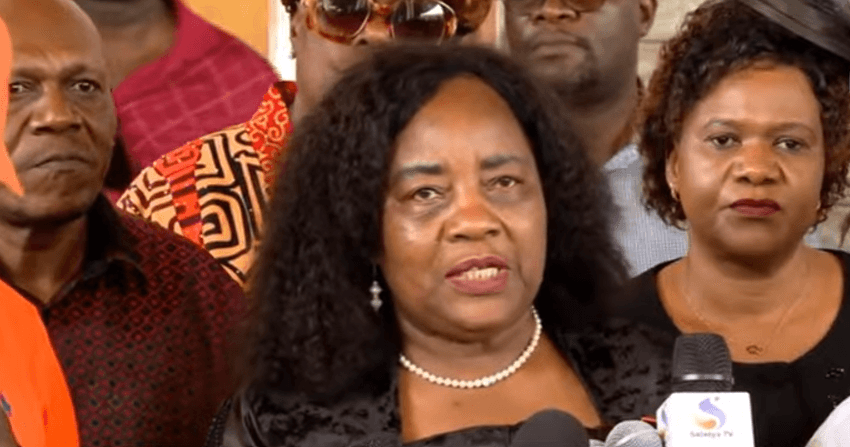The National Treasury will this month issue a Sh175 billion infrastructure bond through the Kenya Roads Board (KRB) to clear a backlog of pending bills and revive stalled road projects countrywide.
Treasury Cabinet Secretary John Mbadi said the bond, part of the government’s strategy to unlock cash flow in the construction sector, follows the successful completion of a Sh104 billion bridge financing facility.
According to Mbadi, Sh93 billion of the bridge facility has already been disbursed to contractors.
“We are taking deliberate steps to address pending bills, especially in the roads sector. Once contractors are paid, work resumes, jobs return and economic momentum improves,” said Mbadi in a monthly briefing with journalists.
The move comes as the construction industry shows signs of a strong rebound, expanding by 5.9 per cent after months of contraction linked to delayed government payments.
The sector’s recovery has been credited with boosting related industries such as cement, steel and transport.
“When we had a 2.9 negative growth in construction industry a few months ago, we were concerned. And we realized that one of the reasons why we had negative growth in construction industry is because the road sector stalled completely due to pending bills,” said Mbadi.
“After paying the pending bills, in the last quarter, the construction industry has grown by 5.9 per cent. And it's supporting the growth of our economy which has hit five per cent.”
A taskforce on pending bills established earlier this year is expected to submit its final report next month, paving the way for a full settlement plan across ministries and agencies.
The CS held that Treasury has made clearing verified bills a top fiscal priority to restore supplier confidence and accelerate stalled public works.
“Payments to road contractors have significantly boosted economic growth and revitalized the construction sector. The pending bills committee’s term was extended by six months, and they are expected to finalize and submit their report next month, this will be the last extension. We have already developed various financing strategies and payment plans to clear the verified bills once the report is received,” the CS noted.
Beyond the roads bond, Mbadi outlined a series of policy actions designed to stabilize Kenya’s finances and improve investor confidence.
He confirmed that the World Bank’s Development Policy Operation (DPO) loan had been delayed pending completion of reforms but assured that disbursement would follow after Kenya submits its Letter of Development Policy.
On the debt front, the Treasury is exploring “debt-for-development” swaps in partnership with global institutions to replace high-cost commercial loans with cheaper, concessional financing.
Mbadi said the approach aims to reduce debt servicing costs and redirect resources toward infrastructure and social programs.
The CS also reaffirmed the stability of the Kenyan shilling, dismissing claims of manipulation and noting that improved exports, higher diaspora inflows, and reduced dollar demand have supported the currency’s strength.
Meanwhile, only $500 million (Sh64.6 billion) of the $1.5 billion (Sh193 billion) UAE financing facility has been drawn, with the Treasury reviewing the cost-effectiveness of further uptake relative to Eurobond and World Bank options.
Looking ahead, the government is finalising plans to launch a National Infrastructure Fund and a Sovereign Wealth Fund to mobilize long-term capital for development projects.
“We are moving from short-term fixes to long-term solutions that align with Kenya’s ambition to become an upper middle-income economy,” Mbadi said.

















